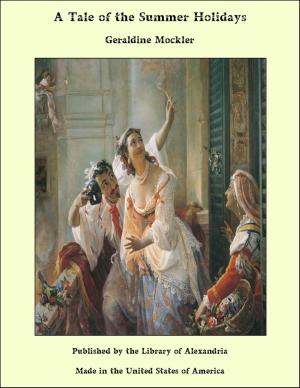The Long Road of Woman’s Memory
Nonfiction, Religion & Spirituality, New Age, History, Fiction & Literature| Author: | Jane Addams | ISBN: | 9781465600059 |
| Publisher: | Library of Alexandria | Publication: | March 8, 2015 |
| Imprint: | Language: | English |
| Author: | Jane Addams |
| ISBN: | 9781465600059 |
| Publisher: | Library of Alexandria |
| Publication: | March 8, 2015 |
| Imprint: | |
| Language: | English |
For many years at Hull-House I have at intervals detected in certain old people, when they spoke of their past experiences, a tendency to an idealization, almost to a romanticism suggestive of the ardent dreams and groundless ambitions we have all observed in the young when they recklessly lay their plans for the future. I have, moreover, been frequently impressed by the fact that these romantic revelations were made by old people who had really suffered much hardship and sorrow, and that the transmutation of their experiences was not the result of ignoring actuality, but was apparently due to a power inherent in memory itself. It was therefore a great pleasure when I found this aspect of memory delightfully portrayed by Sir Gilbert Murray in his life of Euripides. He writes that the aged poet, when he was officially made one of the old men of Athens, declared that he could transmute into song traditional tales of sorrow and wrongdoing because, being long past, they had already become part mystery and part music: “Memory, that Memory who is the Mother of the Muses, having done her work upon them.” Here was an explanation which I might have anticipated; it was the Muses again at their old tricks, — the very mother of them this time, — thrusting their ghostly fingers into the delicate fabric of human experience to the extreme end of life. I had known before that the Muses foregathered with the Spirit of Youth and I had even made a feeble attempt to portray that companionship, but I was stupid indeed not to see that they are equally at home with the aged whose prosaic lives sadly need such interference. Even with this clue in my hands, so preoccupied are we all with our own practical affairs, I probably should never have followed it, had it not been for the visit of a mythical Devil Baby who so completely filled Hull-House with old women coming to see him, that for a period of six weeks I could perforce do little but give them my attention.
For many years at Hull-House I have at intervals detected in certain old people, when they spoke of their past experiences, a tendency to an idealization, almost to a romanticism suggestive of the ardent dreams and groundless ambitions we have all observed in the young when they recklessly lay their plans for the future. I have, moreover, been frequently impressed by the fact that these romantic revelations were made by old people who had really suffered much hardship and sorrow, and that the transmutation of their experiences was not the result of ignoring actuality, but was apparently due to a power inherent in memory itself. It was therefore a great pleasure when I found this aspect of memory delightfully portrayed by Sir Gilbert Murray in his life of Euripides. He writes that the aged poet, when he was officially made one of the old men of Athens, declared that he could transmute into song traditional tales of sorrow and wrongdoing because, being long past, they had already become part mystery and part music: “Memory, that Memory who is the Mother of the Muses, having done her work upon them.” Here was an explanation which I might have anticipated; it was the Muses again at their old tricks, — the very mother of them this time, — thrusting their ghostly fingers into the delicate fabric of human experience to the extreme end of life. I had known before that the Muses foregathered with the Spirit of Youth and I had even made a feeble attempt to portray that companionship, but I was stupid indeed not to see that they are equally at home with the aged whose prosaic lives sadly need such interference. Even with this clue in my hands, so preoccupied are we all with our own practical affairs, I probably should never have followed it, had it not been for the visit of a mythical Devil Baby who so completely filled Hull-House with old women coming to see him, that for a period of six weeks I could perforce do little but give them my attention.















